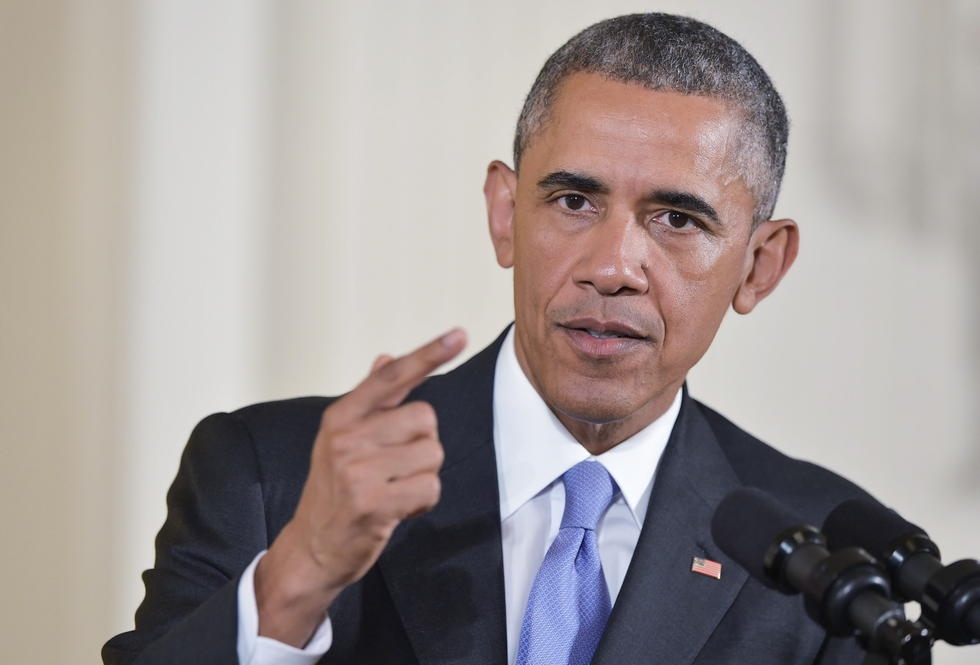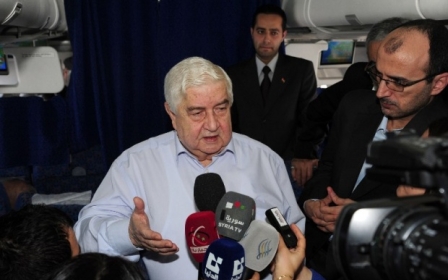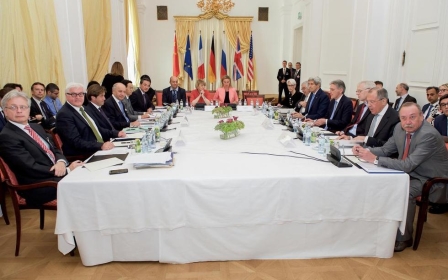Obama’s line on the Iran nuclear deal: A second false narrative

I’m glad that the United States and Iran reached an agreement in Vienna after nearly two years of negotiations and 35 years of enmity. A failure to do so under present political conditions would certainly have left a festering conflict with unpredictably bad consequences. And the successful negotiation of such a far-reaching agreement in which both sides made significant concessions should help to moderate the extreme hostility that has been building up in the United States over the years.
But my enthusiasm for the agreement is tempered by the fact that the US political process surrounding the Congressional consideration of the agreement is going to have the opposite effect. And a big part of the problem is that the Obama administration is not going to do anything to refute the extremist view of Iran as determined to get nuclear weapons. Instead the administration is integrating the idea of Iran as rogue nuclear state into its messaging on the agreement.
Secretary of State John Kerry’s testimony before the Senate Foreign Relations Committee on Thursday makes the administration’s political strategy very clear. In two sentences, Kerry managed to combine the images of Iranian-supported terrorism and sectarian violence across the entire region and Iranian determination to get nuclear weapons. He told the committee about the administration's plans to “push back against Iran’s other activities - against terrorism support, its contribution to sectarian violence in the Middle East,” which he called “unacceptable”. Then he added: “But pushing back against an Iran with nuclear weapons is very different from pushing back against Iran without one.”
The administration’s determination to be just as alarmist about Iran’s alleged nuclear ambitions as its opponents creates a US political discourse on the Iran nuclear issue built around two duelling narratives that disagree about the effect of the agreement but have one politically crucial common denominator: they both hold it as beyond debate that Iran cannot be trusted because it wants nuclear weapons; and the only question is whether and for how long that Iranian quest for nuclear weapons can be held off without war.
The Israeli line is that the agreement is merely a temporary lull, and that it will simply embolden Iran to plan for a bomb once the agreement expires 10 years hence. But for the administration’s tough-minded diplomatic efforts, Iran would have continued advancing towards getting a nuclear weapon, and the only alternative to the agreement is war with Iran.
False assumptions
The common assumption about Iran’s nuclear policy is never debated or even discussed because it is so firmly entrenched in the political discourse by now that there is no need to discuss it. The choice between two hardline views of Iran is hardly coincidental. The Obama administration accepted from day one the narrative about the Iranian nuclear programme that the Israelis and their American allies had crafted during the Bush administration.
The Bush administration’s narrative, adopted after the invasion of Iraq, described a covert nuclear programme run by Iran for two decades, the main purpose of which was to serve as a cover for a secret nuclear weapons programme. Undersecretary of State John Bolton and Vice-President Dick Cheney, who were managing the policy, cleverly used leaks to the New York Times and Wall Street Journal in 2005 to introduce into the domestic political discussion alleged evidence from a collection of documents of then unknown provenance that Iran had a secret nuclear weapons research programme from 2001 to 2003.
The administration also passed the documents on to the International Atomic Energy Agency (IAEA) in 2005, as part of a Bush strategy aimed to take Iran to the United Nations Security Council on the charge of violating its commitments to the Non-Proliferation Treaty. Bolton and Cheney were working with Israel to create a justification for regime change in Iran based on the idea that Iran was working on nuclear weapons under the cover of its nuclear programme.
The entire Bush-Israeli narrative was false, however. It ignored or suppressed fundamental historical facts that contradicted it as this writer found from deeper research on the issue:
- Iran was the one state in the entire world that had a history of abjuring weapons of mass destruction on religious grounds. During the Iran-Iraq war the military leadership had asked Ayatollah Khomeini to approve the manufacture of chemical weapons to retaliate against repeated chemical attacks by Iraqi forces. But Khomeini forbade their possession or use forbidden by the Shia interpretation of the Quran and Shia jurisprudence.
- Iran had begun to pursue uranium enrichment in the mid-1980s only after the Reagan administration had declared publicly that it would prevent Iran from relying on an international consortium in France to provide nuclear fuel for the Bushehr reactor.
- Iran did not inform the IAEA about its acquisition of enrichment technology, its experiments with centrifuges and laser enrichment or its first enrichment facility because of the continued US attempt to suppress the Iranian nuclear programme. Releasing such information would have made it easier for the United States to prevent continued procurement of necessary parts and material and to pressure China to end all nuclear cooperation with Iran.
- The US intelligence community found no hard evidence, either from human intelligence or other forms of intelligence, of an Iranian nuclear weapons programme. US national intelligence estimates during the Bush administration concluding that Iran had run such a programme, including the most famous estimate issued in November 2007, were based on inference, not on hard intelligence. That fact stood in sharp contrast to the very unambiguous human and electronic intelligence the CIA had been able to obtain on covert nuclear weapons programmes in Israel, India, Pakistan, South Africa and South Korea.
Barack Obama came to the White House with a highly critical view of Bush policy towards both Iran and Iraq and was publicly committed to diplomatic engagement with Iran. But his administration’s acceptance of the Bush line that Iran was a nuclear outlaw can be explained by the continuity of policy that the national security bureaucracy generally maintains in the transition from one administration to another, with rare exceptions.
Bureaucracies create the “facts” about any particular issue that support their interests. Defining the Iranian nuclear threat as a threat to proliferate was clearly in the interests of the counter-proliferation offices in the White House, State Department and CIA, which wielded strong influence over the issue within their respective institutions.
The senior officials on Obama’s transition team and his initial national security team, moreover, had been closely associated with different versions of the policy of treating Iran as nuclear rogue state in previous administrations. As Secretary of Defence in the Bush administration, Robert M Gates had catered to the interests of the Congressional-military-industrial alliance behind a missile defence programme in the United States, which had required an alarmist definition of threat from Iran’s missile and nuclear programmes.
Tom Donilon and Wendy Sherman, who had presided over Obama’s State Department transition, were both protégés of the Clinton administration’s Secretary of State, Warren Christopher, who was an ardent proponent of demonising Iran. It should be of no surprise that Donilon said in 2011 that Iran had “a record of deceit and deception,” and that Sherman declared in congressional testimony in 2013 that Iran couldn’t be trusted because “We know that deception is part of the DNA.”
Secretary Kerry and other Obama administration officials may have moderated their views of the Iran’s nuclear programme over the course of negotiations, but the external and domestic pressures for an even tougher line toward Iran have clearly outweighed any such learning process on the issue.
If it isn’t changed dramatically from Kerry’s testimony, the administration’s choice of political strategy will certainly contribute to a domestic political atmosphere in which even the most limited steps toward greater cooperation with Iran are all but impossible for years to come.
- Gareth Porter is an independent investigative journalist and winner of the 2012 Gellhorn Prize for journalism. He is the author of the newly published Manufactured Crisis: The Untold Story of the Iran Nuclear Scare.
The views expressed in this article belong to the author and do not necessarily reflect the editorial policy of Middle East Eye.
Photo credit: US President Barack Obama (AFP)
New MEE newsletter: Jerusalem Dispatch
Sign up to get the latest insights and analysis on Israel-Palestine, alongside Turkey Unpacked and other MEE newsletters
Middle East Eye delivers independent and unrivalled coverage and analysis of the Middle East, North Africa and beyond. To learn more about republishing this content and the associated fees, please fill out this form. More about MEE can be found here.





